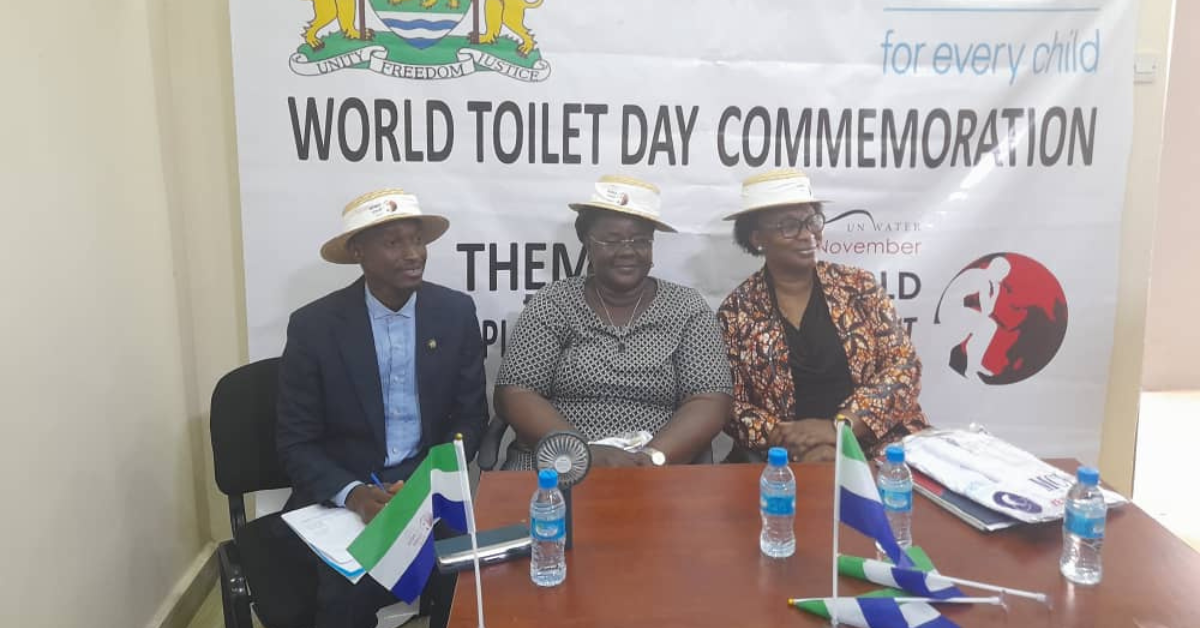The Ministry of Water Resources and Sanitation, through its Directorate of Environmental Sanitation, held a press briefing on Monday, November 18, 2024, ahead of the commemoration of World Toilet Day and the certification of four chiefdoms as Open Defecation Free (ODF).
The main event is scheduled for Tuesday, November 19, in Lungi.
The chiefdoms to receive certification for achieving ODF status are Kargboro, Lokomasama, Wara Wara Yagala, and Kulor Seradu. This recognition highlights their successful efforts in eradicating open defecation, a key step towards improving public health and sanitation.
Acting Director of Environmental Sanitation, Dauda Kamara, outlined the Ministry’s achievements during the press briefing. “We aimed to scale up our approach to include entire chiefdoms, and over the past two years, 21 chiefdoms have achieved Open Defecation Free status,” Kamara stated. He also emphasized the Ministry’s work in developing guidelines and adopting the “City-Wide Inclusive Sanitation Plan,” a strategy proven effective in other countries for comprehensive liquid waste management.
Minister of Water Resources and Sanitation, Dr. Sao Kpato Max-Kyne, delivered the keynote address, expressing pride in the upcoming certification and the progress made towards sustainable sanitation.
“This is not just about recognizing these chiefdoms but also showcasing our country’s progress towards universal access to safe and sustainable sanitation,” Dr. Max-Kyne said. She added that World Toilet Day provides an opportunity to underscore the importance of safe sanitation and protecting human dignity.
The Minister extended gratitude to the leaders, residents, and religious figures of the certified chiefdoms for their commitment, as well as to UNICEF and other partners for their support in achieving these milestones.
The press briefing concluded with a Q&A session, where media representatives posed questions about the Ministry’s future initiatives and strategies to sustain the ODF achievements.
World Toilet Day is observed globally to raise awareness of the importance of sanitation and its impact on public health, dignity, and environmental sustainability.











